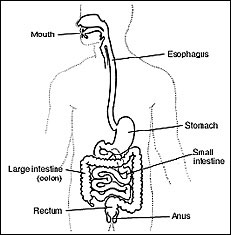Which foods cause gas?
Most foods that contain carbohydrates can cause gas. By contrast, fats and proteins cause little gas.
Sugars
The sugars that cause gas are raffinose, lactose, fructose, and sorbitol.
Raffinose
Beans contain large amounts of this complex sugar. Smaller amounts are found in cabbage, brussels sprouts, broccoli, asparagus, other vegetables, and whole grains.
Lactose
Lactose is the natural sugar in milk. It is also found in milk products, such as cheese and ice cream, and processed foods, such as bread, cereal, and salad dressing. Many people, particularly those of African, Native American, or Asian background, normally have low levels of the enzyme lactase needed to digest lactose after childhood. Also, as people age, their enzyme levels decrease. As a result, over time people may experience increasing amounts of gas after eating food containing lactose.
Fructose
Fructose is naturally present in onions, artichokes, pears, and wheat. It is also used as a sweetener in some soft drinks and fruit drinks.
Sorbitol
Sorbitol is a sugar found naturally in fruits, including apples, pears, peaches, and prunes. It is also used as an artificial sweetener in many dietetic foods and sugarfree candies and gums.
Starches
Most starches, including potatoes, corn, noodles, and wheat, produce gas as they are broken down in the large intestine. Rice is the only starch that does not cause gas.
Fiber
Many foods contain soluble and insoluble fiber. Soluble fiber dissolves easily in water and takes on a soft, gel-like texture in the intestines. Found in oat bran, beans, peas, and most fruits, soluble fiber is not broken down until it reaches the large intestine, where digestion causes gas.
Insoluble fiber, on the other hand, passes essentially unchanged through the intestines and produces little gas. Wheat bran and some vegetables contain this kind of fiber.
What are some symptoms and problems of gas?
The most common symptoms of gas are flatulence, abdominal bloating, abdominal pain, and belching. However, not everyone experiences these symptoms. The determining factors probably are how much gas the body produces, how many fatty acids the body absorbs, and a person’s sensitivity to gas in the large intestine.


